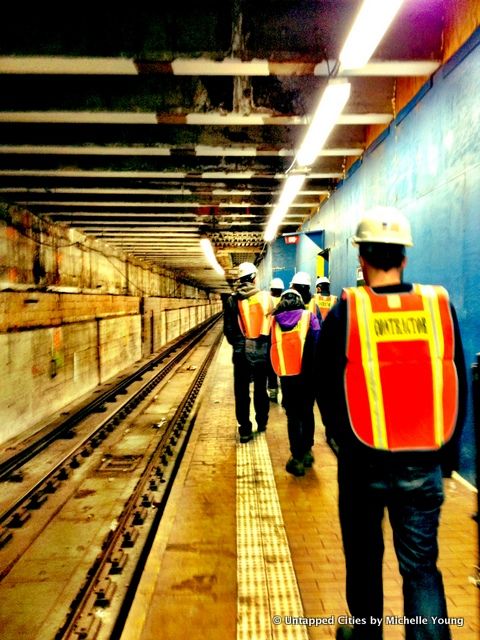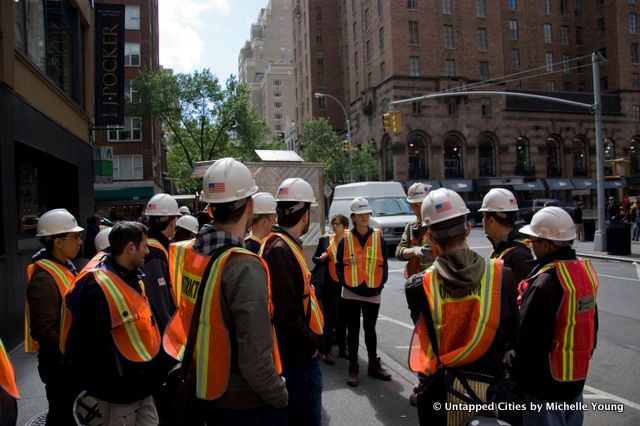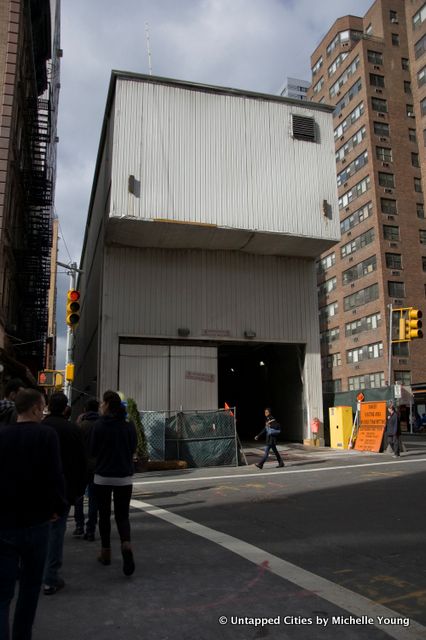100th Anniversary Great Nave Tour at the Cathedral of St. John the Divine
Celebrate the 1925 construction of the stunning nave inside the world's largest Gothic cathedral!


Our group, emerging onto the functioning F train platform at 63rd Street/Lexington Avenue
Thanks to the American Planning Association’s Student Representatives Council (APA-SRC) in partnership with the MTA Capital Construction program, I had the opportunity to take a tour of the 63rd Street Station upgrade that’s part of the 2nd Avenue Subway project. The APA-SRC has been giving tours of the Second Avenue Subway project to residents and students as part of a community outreach program.
While the underground scenes of the Second Avenue Subway and the 7 Line Extension were beautifully documented for Untapped Cities by one of our writers last year, our opportunities for photography were more limited this time due to new policies. What I want to focus on instead is how the tour revealed an entire underground world with its own sets of boundaries and politics–that being the demarcations between contracting firms below ground, and the thin line between construction and the existing subway system.
The 63rd Street Station Upgrade is being handled by Judlau Contracting at a budget of $185.3 million. At the surface level and even in the existing station itself, it’s hard to discern just the amount of construction that’s taking place. We entered through a modest looking structure, which could have been mistaken for any other decommissioned subway entrance or utilities hut. Along the F train platform, a thin blue construction wall (below) is the only thing that separates daily subway passengers from an existing subway tunnel that’s being retrofitted and connected to a Q line extension. Even to our surprise, when we exited our exploration of the new tunnel we were suddenly walking amidst regular passengers–although we were obviously differentiated by our orange construction vests and white hard hats.
We were able to walk to the end of the subway tunnel to an area known as the “stub cavern” and peek into the newer section that had been created by the Tunnel Boring Machine (TBM. A large wooden panel separated the two sections, as another construction company had the contract for the next section. Explaining the physical marker of the separation, our guide told us “It’s just easier that way.” I think as residents we often think of the MTA as a monolith, forgetting that it takes a great number of contracted companies to carry out capital projects this size. This tour highlighted just that.
The 63rd Street Station is far, far beneath the surface. Daily passengers are removed from this reality as they are automatically transported downwards by a series of escalators. But we went down along 3rd Avenue through rickety temporary staircases. It was almost like being in a mine facility, with the exposed bedrock and the seemingly never ending cavern below.
 Our guide from Judlau explaining the devices that measure whether any of the buildings have been displaced due to the construction below
Our guide from Judlau explaining the devices that measure whether any of the buildings have been displaced due to the construction below
 Structures along 2nd Avenue above some of the construction
Structures along 2nd Avenue above some of the construction
The Second Avenue subway line is to be constructed in phases, with Phase I running from 63rd street to 96th street. Financing has only been secured to complete Phase I however, which is scheduled to finish in December 2016. When completed, the new Lexington Av/63rd Street Station will have four new entrances, including street-level and mezzanine level ADA accessible elevators. Work involves excavation for the construction of an entrance and ancillary buildings, removal and upgrade of the structural elements within the existing subway tunnel, and a traction power connection to the Lexington Av/59th Street Station on the Q Line. This work should be completed by spring of 2014.
Follow Untapped Cities on Twitter and Facebook. Get in touch with the author @untappedmich. Find out more about the MTA Capital Construction projects.
Subscribe to our newsletter